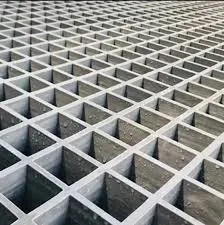
-
 Afrikaans
Afrikaans -
 Albanian
Albanian -
 Amharic
Amharic -
 Arabic
Arabic -
 Armenian
Armenian -
 Azerbaijani
Azerbaijani -
 Basque
Basque -
 Belarusian
Belarusian -
 Bengali
Bengali -
 Bosnian
Bosnian -
 Bulgarian
Bulgarian -
 Catalan
Catalan -
 Cebuano
Cebuano -
 China
China -
 China (Taiwan)
China (Taiwan) -
 Corsican
Corsican -
 Croatian
Croatian -
 Czech
Czech -
 Danish
Danish -
 Dutch
Dutch -
 English
English -
 Esperanto
Esperanto -
 Estonian
Estonian -
 Finnish
Finnish -
 French
French -
 Frisian
Frisian -
 Galician
Galician -
 Georgian
Georgian -
 German
German -
 Greek
Greek -
 Gujarati
Gujarati -
 Haitian Creole
Haitian Creole -
 hausa
hausa -
 hawaiian
hawaiian -
 Hebrew
Hebrew -
 Hindi
Hindi -
 Miao
Miao -
 Hungarian
Hungarian -
 Icelandic
Icelandic -
 igbo
igbo -
 Indonesian
Indonesian -
 irish
irish -
 Italian
Italian -
 Japanese
Japanese -
 Javanese
Javanese -
 Kannada
Kannada -
 kazakh
kazakh -
 Khmer
Khmer -
 Rwandese
Rwandese -
 Korean
Korean -
 Kurdish
Kurdish -
 Kyrgyz
Kyrgyz -
 Lao
Lao -
 Latin
Latin -
 Latvian
Latvian -
 Lithuanian
Lithuanian -
 Luxembourgish
Luxembourgish -
 Macedonian
Macedonian -
 Malgashi
Malgashi -
 Malay
Malay -
 Malayalam
Malayalam -
 Maltese
Maltese -
 Maori
Maori -
 Marathi
Marathi -
 Mongolian
Mongolian -
 Myanmar
Myanmar -
 Nepali
Nepali -
 Norwegian
Norwegian -
 Norwegian
Norwegian -
 Occitan
Occitan -
 Pashto
Pashto -
 Persian
Persian -
 Polish
Polish -
 Portuguese
Portuguese -
 Punjabi
Punjabi -
 Romanian
Romanian -
 Russian
Russian -
 Samoan
Samoan -
 Scottish Gaelic
Scottish Gaelic -
 Serbian
Serbian -
 Sesotho
Sesotho -
 Shona
Shona -
 Sindhi
Sindhi -
 Sinhala
Sinhala -
 Slovak
Slovak -
 Slovenian
Slovenian -
 Somali
Somali -
 Spanish
Spanish -
 Sundanese
Sundanese -
 Swahili
Swahili -
 Swedish
Swedish -
 Tagalog
Tagalog -
 Tajik
Tajik -
 Tamil
Tamil -
 Tatar
Tatar -
 Telugu
Telugu -
 Thai
Thai -
 Turkish
Turkish -
 Turkmen
Turkmen -
 Ukrainian
Ukrainian -
 Urdu
Urdu -
 Uighur
Uighur -
 Uzbek
Uzbek -
 Vietnamese
Vietnamese -
 Welsh
Welsh -
 Bantu
Bantu -
 Yiddish
Yiddish -
 Yoruba
Yoruba -
 Zulu
Zulu
fiberglass pipe fittings
The Advantages and Applications of Fiberglass Pipe Fittings
Fiberglass pipe fittings have emerged as a critical component in various industries due to their unique properties and advantages over traditional materials. These fittings, made from a composite of glass fibers and resin, combine strength, lightweight characteristics, and excellent corrosion resistance, making them an ideal choice for a range of applications.
One of the primary benefits of fiberglass pipe fittings is their resistance to corrosion. Unlike metal fittings that can rust or corrode when exposed to aggressive chemicals or harsh environments, fiberglass fittings maintain their integrity over time. This makes them particularly suitable for industries such as oil and gas, chemical processing, and wastewater management, where exposure to corrosive substances is common. The longevity of fiberglass fittings can significantly reduce maintenance costs and the need for frequent replacements.
Weight is another critical advantage of fiberglass fittings. Compared to their metal counterparts, fiberglass fittings are considerably lighter, making them easier to handle and install. This reduced weight can lead to lower transportation costs and quicker installation times, enhancing overall project efficiency. Moreover, the lightweight nature of fiberglass fittings minimizes the structural load on the piping system, which is especially beneficial in applications where weight is a critical factor.
fiberglass pipe fittings

In addition to their physical properties, fiberglass fittings offer excellent thermal and electrical insulation. This quality makes them ideal for applications involving temperature fluctuations or electrical components, as they help to prevent energy loss and enhance system efficiency. Their non-conductive nature also adds a layer of safety in electrical applications, reducing the risk of short circuits.
Another noteworthy aspect of fiberglass pipe fittings is their versatility. They can be manufactured in various shapes, sizes, and configurations, making them suitable for a wide range of piping systems. Whether it’s a simple elbow fitting or a complex custom design, fiberglass fittings can be produced to meet specific project demands. This flexibility allows engineers and contractors to implement creative solutions tailored to unique challenges faced in their installation environments.
The environmental impact of fiberglass fittings is also a consideration worth noting. As manufacturers focus on more sustainable practices, the production of fiberglass fittings has evolved to incorporate recycled materials, reducing waste and minimizing the carbon footprint associated with their manufacture.
In conclusion, fiberglass pipe fittings offer a multitude of advantages, including corrosion resistance, lightweight properties, thermal and electrical insulation, versatility, and potential environmental benefits. Their wide range of applications in various industries underscores their importance in modern piping systems. As industries continue to evolve, the demand for durable, efficient, and sustainable solutions like fiberglass fittings is likely to grow, solidifying their place in the future of infrastructure development.









